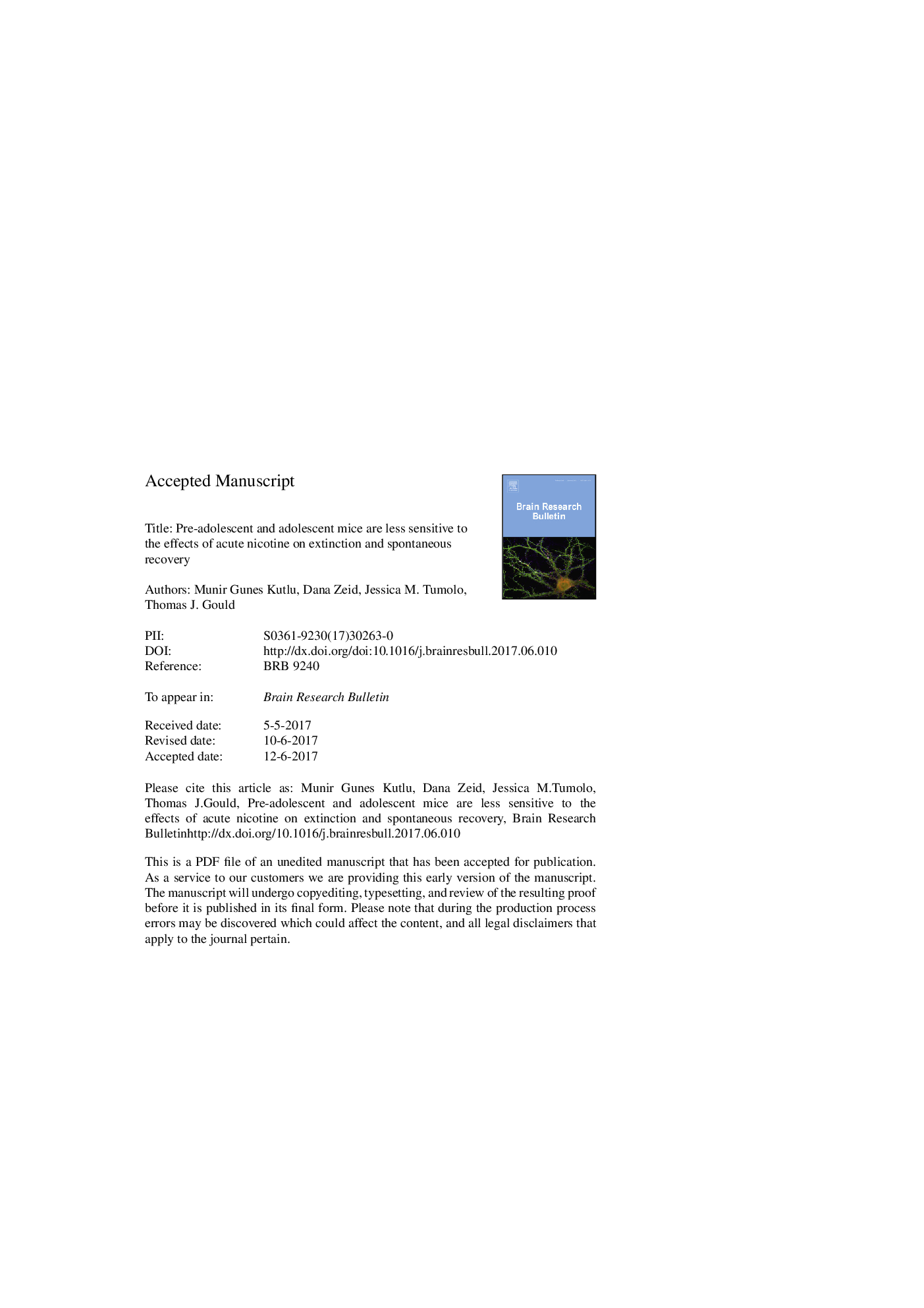| Article ID | Journal | Published Year | Pages | File Type |
|---|---|---|---|---|
| 8838958 | Brain Research Bulletin | 2018 | 26 Pages |
Abstract
Adolescence is a period of high risk for the initiation of nicotine product usage and exposure to traumatic events. In parallel, nicotine exposure has been found to age-dependently modulate acquisition of contextual fear memories; however, it is unknown if adolescent nicotine exposure alters extinction of fear related memories. Age-related differences in sensitivity to the effects of nicotine on fear extinction could increase or decrease susceptibility to anxiety disorders. In this study, we examined the effects of acute nicotine administration on extinction and spontaneous recovery of contextual fear memories in pre-adolescent (PND 23), late adolescent (PND 38), and adult (PND 53) C57B6/J mice. Mice were first trained in a background contextual fear conditioning paradigm and given an intraperitoneal injection of one of four doses of nicotine (0.045, 0.09, 0.18, or 0.36Â mg/kg, freebase) prior to subsequent extinction or spontaneous recovery sessions. Results indicated that all acute nicotine doses impaired extinction of contextual fear in adult mice. Late adolescent mice exhibited impaired extinction of contextual fear only following higher doses of acute nicotine, and extinction of contextual fear was unaffected by acute nicotine exposure in pre-adolescent mice. Finally, acute nicotine exposure enhanced spontaneous recovery of fear memory, but only in adult mice. Overall, our results suggest that younger mice were less sensitive to nicotine's impairing effects on extinction of contextual fear and to nicotine's enhancing effects on spontaneous recovery of contextual fear memory.
Related Topics
Life Sciences
Neuroscience
Cellular and Molecular Neuroscience
Authors
Munir Gunes Kutlu, Dana Zeid, Jessica M. Tumolo, Thomas J. Gould,
